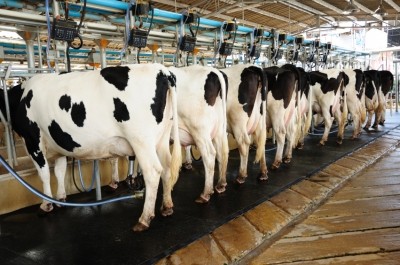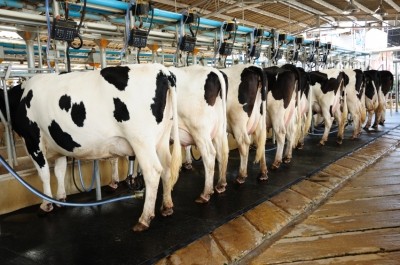Irish precision player zooming in on targets in the feed space

Its patented technology uses milk proteins and other biomaterials to create capsules that protect and deliver sensitive ingredients to a target site.
“We have been doing a lot research in the area of rumen bypass, encapsulating essential oils and omega-3 oils to prevent degradation in the rumen so they reach the small intestine.
“Validation work in this area has involved both in vitro and in vivo research as we have access to herds at the Irish Dairy Institute's research farm,” Stefan Buzoianu, business development manager, animal health and nutrition at AnaBio, told us.
Up to recently, AnaBio had been working, in the main, with large, international infant formula and food companies, working off 12 patents, but now wants to expand its microcapsule encapsulation platform to a greater number of feed applications.
The shift away from antibiotics and the growing interest in alternative products to support animal health is behind a growing interest in novel and effective delivery methods that allow more optimal use of costly ingredients like probiotics, said Buzoianu.
“We see demand from larger companies that operate in both human and animal nutrition segments; they get better value from their investment if the technology works across the two sectors.”
The company has been investigating the storage, process and delivery mechanisms of feed ingredients.
However, encapsulation of ingredients for use in livestock diets must make sense economically: “Margins are lower in the feed and food sectors, compared to the pharmaceutical sector, where encapsulation technology tends to be used widely,” he acknowledged.
Identifying feed candidates
The precision nutrition firm, then, is trying to determine the most likely feed ingredient candidates to benefit from its technology.
“We are in the process of identifying, with the help of the leading animal feed players, which feed ingredients are the most unstable, which ones incur the greatest amount of loss, and which ones, then, could best absorb additional encapsulation costs,” said Sinead Bleiel, company founder and director.
As of now, the hot contenders are products like essential oils, probiotics, astaxanthin, and iron. “They would seem to offer the most potential,” she said. “Savings can be generated through the low dosages of ingredient required and the higher bioavailability we see through encapsulation.”
Moreover, encapsulation of iron products for piglets may be a better approach than the current oral injection delivery method, added Buzoianu.
The firm has also been encapsulating medication such as vaccines for use in farm animals, to taste mask them.
Expansion plans
Bleiel initially built AnaBio from her PhD work at Teagasc, Moorepark and University College Cork (UCC).
The company is supported by the Irish government, through Enterprise Ireland, and, in just six years, has seen sales skyrocket. “We are now an SME; we are no longer a start-up. We are growing. We are extending our production. We have 23 people on the payroll now, and in six months’ time, we anticipate that increasing by around 30 to 40%.
“No one else is doing what we are doing. We do not really have a comparable competitor. We do not spray dry. We encapsulate the active component in wet microbeads, and then dry it. We have the best encapsulation expertise and we also rely on bespoke instrumentation to make the micro particles,” she said.
The firm also benefits, she said, from close collaboration with customers. “We want to provide them with a cost effective formulation. We go from lab bench to the scale that our clients need, and that scale can vary hugely.”
AnaBio is also in the process of broadening out the range of materials its uses for its encapsulation systems, with it now investigating vegetable protein capsules.















